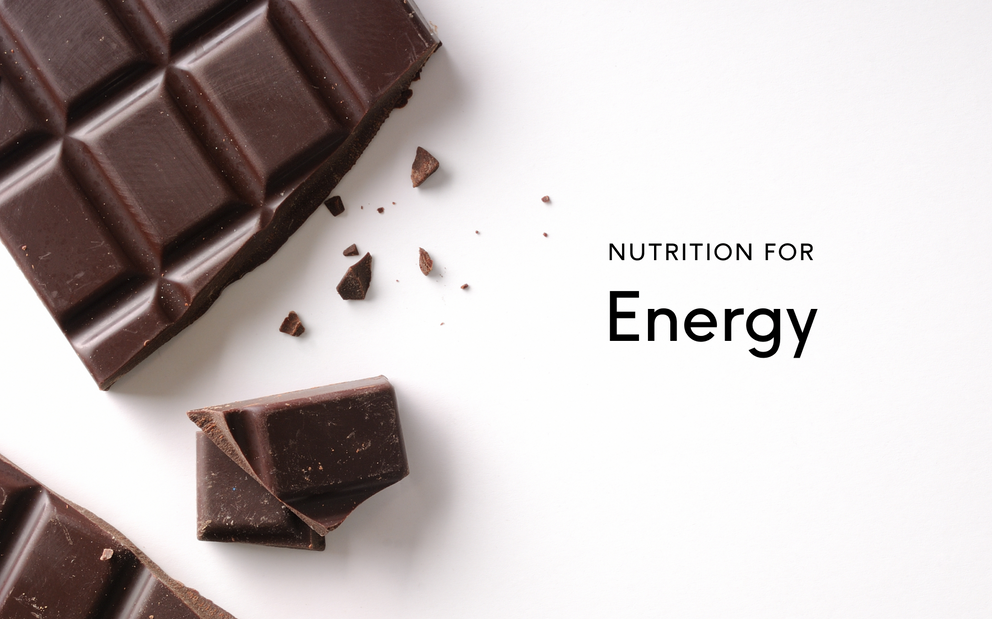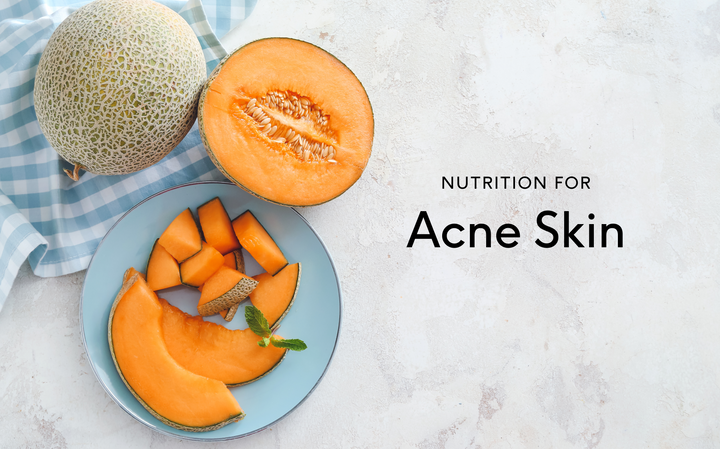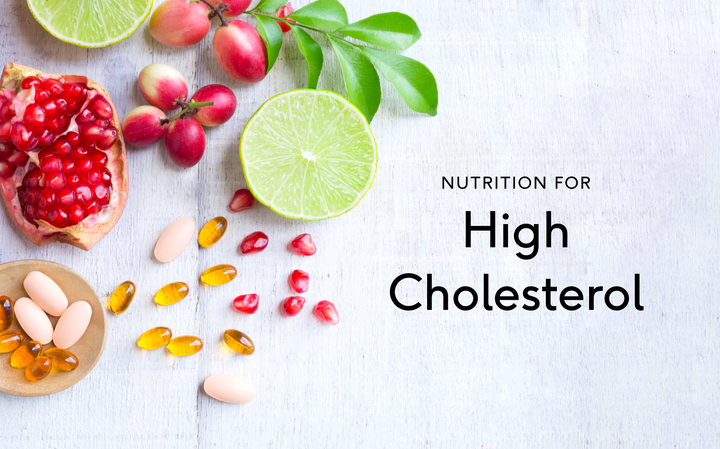Best 5 Foods to Boost Your Energy Naturally
Table of contents

Best Food for Energy: Fueling Your Body for Maximum Performance
Energy is an essential element required by the body to perform various activities such as running, working, and even thinking. Eating a well-balanced diet that is rich in nutrients, especially energy-boosting foods, can help you maintain high energy levels throughout the day. In this article, we'll be discussing the best foods for energy and how you can use them to fuel your body for maximum performance.
What food gives you energy fastest?
- When you need an immediate energy boost, the food you choose can make a significant difference. Some foods are high in simple sugars, which can provide a quick burst of energy, while others are rich in complex carbohydrates that provide sustained energy. Here are some of the best foods for an immediate energy boost:
- Bananas: Bananas are an excellent source of complex carbohydrates and potassium, which can help regulate fluid balance in the body. They also contain natural sugars, such as glucose, fructose, and sucrose, which can provide an immediate energy boost.
- Dark chocolate: Dark chocolate contains caffeine and theobromine, which are natural stimulants that can increase energy levels. It also contains flavonoids, which can improve blood flow and lower blood pressure, resulting in increased energy levels.
- Apples: Apples are rich in natural sugars, fiber, and antioxidants, making them an excellent choice for an energy boost. They also contain quercetin, which can improve endurance and reduce fatigue.
- Nuts: Nuts are high in protein, healthy fats, and fiber, which can help regulate blood sugar levels and provide sustained energy. They also contain magnesium, which is essential for energy production.
- Greek yogurt: Greek yogurt is an excellent source of protein and carbohydrates, making it an ideal choice for an energy boost. It also contains probiotics, which can improve gut health and nutrient absorption.
How can I eat for maximum energy?
- Eating a well-balanced diet that is rich in nutrients is essential for maintaining high energy levels throughout the day. Here are some tips for eating for maximum energy:
- Eat a variety of foods: Eating a variety of foods can help ensure that you get all the nutrients your body needs to produce energy.
- Choose complex carbohydrates: Complex carbohydrates, such as whole grains, fruits, and vegetables, provide sustained energy and can help regulate blood sugar levels.
- Avoid simple sugars: Simple sugars, such as those found in candy and soda, can provide a quick energy boost but can lead to a crash in energy levels.
- Eat protein with every meal: Protein is essential for muscle repair and energy production. Eating protein with every meal can help regulate blood sugar levels and provide sustained energy.
- Stay hydrated: Dehydration can lead to fatigue and decreased energy levels. Make sure to drink plenty of water throughout the day.
What meals are best for energy?
- Eating well-balanced meals that contain a variety of nutrients can help you maintain high energy levels throughout the day. Here are some meal ideas that are ideal for energy:
- Breakfast: A breakfast that is rich in complex carbohydrates and protein can help you start your day with high energy levels. Some great options include oatmeal with nuts and fruit, Greek yogurt with granola and berries, or scrambled eggs with whole-grain toast.
- Lunch: A lunch that contains lean protein, complex carbohydrates, and healthy fats can help provide sustained energy throughout the afternoon. Some great options include a chicken or turkey sandwich with whole-grain bread and avocado, a quinoa bowl with vegetables and grilled chicken, or a salad with mixed greens, nuts, and grilled salmon.
- Dinner: A dinner that contains lean protein, complex carbohydrates, and vegetables can help you end your day with high energy levels. Some great options include grilled chicken with sweet potatoes and roasted vegetables, salmon with brown rice and steamed broccoli, or a vegetarian stir-fry with tofu and mixed vegetables.
- Snacks are also an excellent way to provide an energy boost throughout the day. Some great snack options include fruit and nut bars, hummus and veggies, or Greek yogurt with fruit and granola.
How can I Increase my body energy?
- In addition to eating a well-balanced diet, there are other ways to increase your body's energy levels. Here are some tips:
- Exercise regularly: Regular exercise can help increase energy levels by improving circulation, increasing oxygen and nutrient delivery to the muscles, and improving sleep quality.
- Get enough sleep: Sleep is essential for energy production and muscle recovery. Aim to get 7-8 hours of sleep each night.
- Manage Stress: Chronic stress can lead to fatigue and decreased energy levels. Practice stress management techniques, such as meditation, yoga, or deep breathing exercises.
- Drink green tea: Green tea contains caffeine and theanine, which can improvice focus and energy levels.
- Take breaks: Taking short breaks throughout the day can help prevent burnout and increase energy levels.
What are the best meals for energy?
- Whole grains: Whole grains, such as brown rice, quinoa, and whole-grain bread, are rich in complex carbohydrates, which provide sustained energy.
- Lean protein: Lean protein, such as chicken, turkey, fish, and tofu, is essential for muscle repair and energy production.
- Fruits and vegetables: Fruits and vegetables are rich in antioxidants, fiber, and vitamins, which can help regulate blood sugar levels and provide sustained energy.
- Healthy fats: Healthy fats, such as those found in nuts, seeds, avocado, and olive oil, can help regulate blood sugar levels and provide sustained energy.
- Water: Dehydration can lead to fatigue and decreased energy levels. Make sure to drink plenty of water throughout the day to stay hydrate?
What should i eat before a workout?
-
Eating the right foods before a workout can help fuel your body and improve performance. Here are some tips for what to eat before a workout:
- Carbs: Eating carbohydrates before a workout can help provide energy for the muscles. Choose complex carbohydrates, such as whole-grain bread, fruit, or sweet potatoes.
- Protein: Eating protein before a workout can help prevent muscle breakdown and promote muscle repair. Choose lean protein, such as chicken, turkey, or tofu.
- Avoid high-fat foods: High-fat foods can take longer to digest and can lead to stomach discomfort during a workout.
- Hydrate: Make sure to drink plenty of water before a workout to stay hydrated.
- Timing: Eat a meal or snack containing carbohydrates and protein 1-2 hours before a workout. If you're eating a small snack, aim to eat it 30 minutes to an hour before your workout.
What should i eat before a workout?
- When you need an immediate energy boost, there are several foods you can choose from. Here are some of the best foods for immediate energy:
- Bananas: Bananas are an excellent source of complex carbohydrates and natural sugars, which can provide an immediate energy boost.
- Dark chocolate: Dark chocolate contains natural stimulants, such as caffeine and theobromine, which can increase energy levels.
- Apples: Apples are rich in natural sugars and antioxidants, making them an excellent choice for an energy boost.
- Nuts: Nuts are high in protein, healthy fats, and fiber, which can help regulate blood sugar levels and provide sustained energy. They also contain magnesium, which is essential for energy production.
- Energy bars: Energy bars are specifically designed to provide an immediate energy boost. Look for bars that contain complex carbohydrates, such as oats or quinoa, and natural sugars, such as honey or dates.
- Medical References:
-
-
EFSA Panel on Dietetic Products, Nutrition and Allergies (NDA). (2010). Scientific Opinion on Dietary Reference Values for carbohydrates and dietary fibre. EFSA Journal, 8(3), 1462. doi: 10.2903/j.efsa.2010.1462
-
National Health Service UK. (2022). Energy and Metabolism. Retrieved from https://www.nhs.uk/live-well/eat-well/how-to-get-more-energy/
-
Rodriguez-Mateos, A., Hezel, M., Aydin, H., Kelm, M., & Lundberg, J. O. (2015). Incorporation of cocoa flavanols into plasma does not modify nitric oxide bioavailability, endothelial function, or inflammation in humans. Journal of Nutrition, 145(11), 2325–2332. doi: 10.3945/jn.115.220844
-
Thomas, D. T., Erdman, K. A., & Burke, L. M. (2016). Position of the Academy of Nutrition and Dietetics, Dietitians of Canada, and the American College of Sports Medicine: Nutrition and athletic performance. Journal of the Academy of Nutrition and Dietetics, 116(3), 501–528. doi: 10.1016/j.jand.2015.12.006
-
U.S. Department of Agriculture. (2015). Dietary Guidelines for Americans 2015-2020, Eighth Edition. Retrieved from https://health.gov/our-work/food-nutrition/2015-2020-dietary-guidelines/guidelines/appendix-2/
In conclusion, choosing the right foods can provide an energy boost and maintain high energy levels throughout the day. Incorporating foods that are high in complex carbohydrates, lean protein, and healthy fats, along with staying hydrated, can help increase energy levels. In addition to diet, regular exercise, quality sleep, stress management, and hydration are also important factors in maintaining high energy levels. By following these tips and incorporating the best foods for energy into your diet, you can fuel your body for maximum performance.
-




















































 Back
Back





